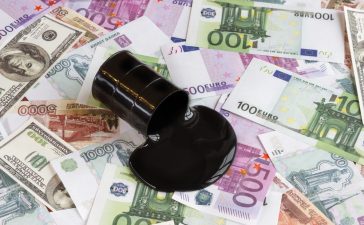MSCI’s broadest index of Asia-Pacific shares outside Japan was up 2%, following mild losses for U.S. shares overnight
Asian share markets were higher on Tuesday and oil was weaker as investors sought to digest the economic implications of China’s COVID-19 policy adjustments and a rescue package for the country’s struggling property sector.
MSCI’s broadest index of Asia-Pacific shares outside Japan was up 2%, following mild losses for U.S. shares overnight.
Australian shares lost 0.07%, while Japan’s Nikkei stock index was up 0.18% after initially trading in negative territory.
In Hong Kong, the Hang Seng Index surged 4% while China’s CSI300 Index reversed an earlier weaker start to be up by 1.77%. In a remarkable bounce, the Hang Seng index is up nearly 25% for the month while the CSI300 has gained 10% in that time.
Some Chinese cities have begun cutting routine community testing, days after China announced an easing of some of its heavy-handed coronavirus measures. At the same time, however, COVID case numbers in the country have grown.
Investors are buying first and then asking questions later, Jack Siu, China chief investment officer at Credit Suisse, said, referring to the bounce in Hong Kong and mainland stocks.
However, he cautioned, ‘while the COVID changes and housing package will alleviate some of the downside risks, it won’t be enough to meaningfully boost Chinese economic growth yet.’
The Hong Kong and Chinese stock bounce came after U.S President Joe Biden and China’s President Xi Jinping held a three-hour meeting on Monday in Bali on the sidelines of the G20 gathering. The two countries’ pledge of more frequent communications was welcomed by investors.
In early European trades, the pan-region Euro Stoxx 50 futures were up 0.21% at 3,892, German DAX futures were 0.09% higher at 14,338 and FTSE futures were down 0.18% at 7,379.
U.S. stock futures, the S&P 500 e-minis, were up 0.48% at 3,985.
Chinese data out on Tuesday was also not encouraging but did little to quell the stock market bounce.
Industrial output rose in October was up 5.0% on a year earlier, slowing from the 6.3% annual pace seen in September, while retail sales fell 0.5%, the first drop since May, when Shanghai was under a city-wide lockdown. Analysts had expected retail sales to rise 1.0%.
In contrast to stocks, oil dropped on that fears China could impose further lockdowns in some cities. U.S. crude fell 0.43% to $85.43 a barrel while Brent crude slipped 0.2% to $92.81.
The dollar rose 0.25% against the yen to 140.23. It is still some distance from its high this year of 151.94 on Oct. 21.
The euro was flat at $1.0329, having gained 4.51% in a month, while the dollar index, which tracks the greenback against a basket of currencies of other major trading partners, was slightly down at 106.85.





